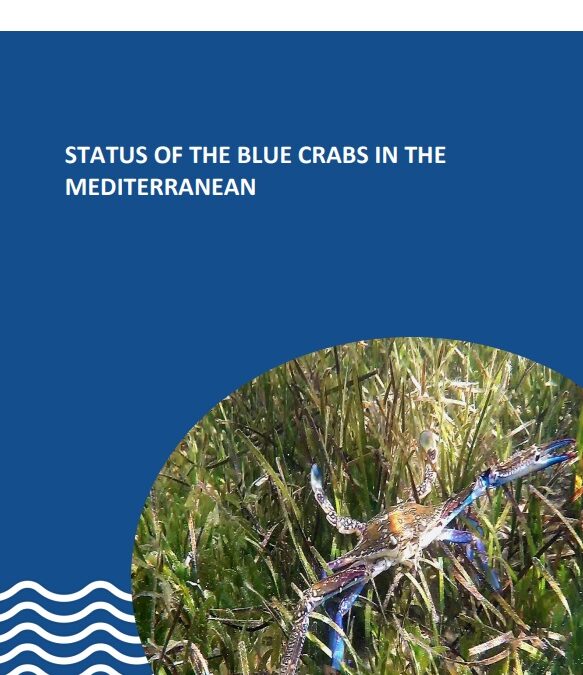Innovative strategies and regional cooperation to turn an invasive species into a sustainable opportunity in the Mediterranean.
Over the past ten years, the invasive blue crab (Portunus segnis), nicknamed “Daesh” by Tunisian fishermen for its destructive nature, has spread through the coastal waters of the Mediterranean, severely disrupting traditional fishing and threatening marine ecosystems.
What was initially seen as an ecological and economic disaster is slowly turning into an opportunity thanks to innovative initiatives and coordinated projects. Among these, the FishEBM Med project, funded by the Global Environment Facility (GEF), promotes practical solutions to mitigate the impacts of invasive species while supporting the development of a sustainable blue economy.
At the same time, the Specially Protected Areas Regional Activity Centre (SPA/RAC), in collaboration with international and national partners such as the Italian Ministry of Environment and Energy Security (MASE), has developed and published guidelines to prevent the introduction and control the spread of non-indigenous species (NIS), with a particular focus on the blue crab. These guidelines align with the Post-2020 SAPBIO strategic framework for marine biodiversity protection in the Mediterranean.
The SPA/RAC report summarizes experiences and strategies implemented in countries such as Spain, France, Italy, Tunisia, and Turkey, highlighting the importance of monitoring ecological impacts, implementing targeted control and sustainable fishing measures, raising public awareness about socio-ecological implications, promoting early detection and rapid response, and strengthening international cooperation for coordinated regional action.
In Tunisia, for example, some fishermen have adopted legal crab fishing methods using traps, turning a threat into a commercial opportunity: crab shells, once considered waste, are now valorized through the production of chitosan, a bioingredient with applications in various sectors and highly sought after by the Asian market. This shift has also helped reduce illegal and harmful practices such as bottom trawling (“KISS”), thereby protecting marine habitats.
The FishEBM Med project, managed by FAO and UNEP with the implementation by the General Fisheries Commission for the Mediterranean (GFCM) and UNEP’s Mediterranean Action Plan (MAP), including SPA/RAC, represents an integrated response to the ecological and economic challenges posed by invasive species, based on ecosystem-based management and the sustainable development of the blue economy.

